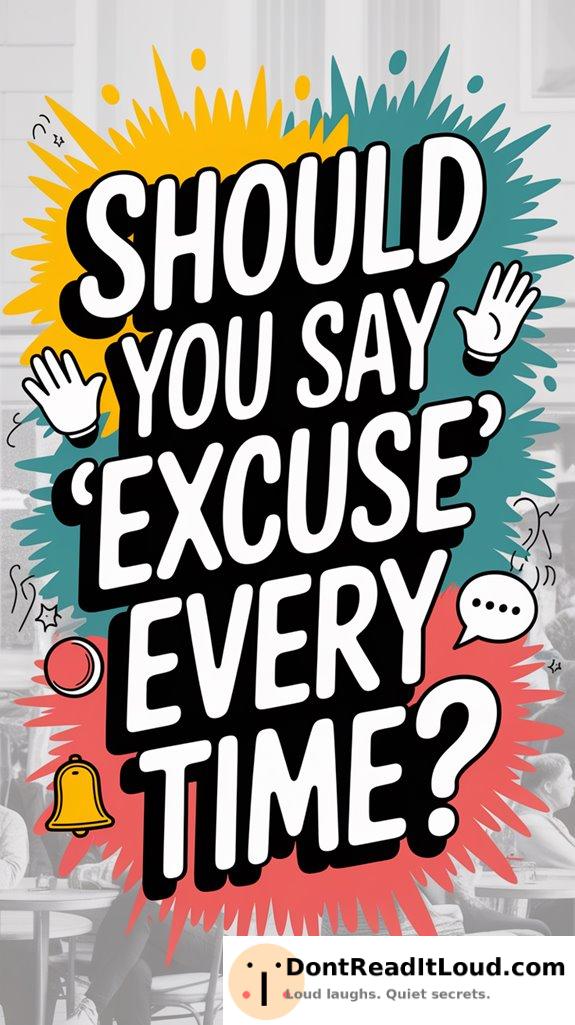
You don’t have to say “excuse me” every time you pass by someone, but using it thoughtfully shows respect. Reserve it for crowded areas, close quarters, or when you need to interrupt. If you overuse the phrase, it can lose its impact. Focus on being genuine and paying attention to the situation. This approach will help you handle social interactions gracefully.

Everyday interactions often require a bit of courtesy, and knowing when to say “excuse me” can make all the difference. You move through crowded spaces, pass by coworkers, or interrupt conversations, and each situation calls for some level of polite communication. You might wonder, though, if you really need to say “excuse me” every single time. Social interactions are full of unwritten rules, and it’s not always obvious how often you should use this phrase without sounding insincere or overly formal.
In a busy hallway or packed store, saying “excuse me” as you weave past people shows respect and helps you navigate smoothly. It tells others you notice them and care about their comfort. This small gesture can prevent awkward moments and create a friendlier atmosphere, especially where space is tight.
However, using it every time you pass someone can make the phrase feel routine and less meaningful. Strive for sincere politeness, rather than simply repeating the same words out of habit.
When you need to interrupt a conversation, “excuse me” is especially helpful. If you want to get someone’s attention or join a discussion, these words show you value their time. It lets you enter the conversation politely, without being abrupt.
But if you interrupt often, repeating “excuse me” each time can disrupt the flow and draw focus to yourself. Consider the situation and balance politeness with natural conversation.
There are also times when saying “excuse me” isn’t needed. For instance, a small movement in an open area or when someone already sees you may not require it. Using the phrase too much can make your interactions feel stiff or overly formal. Save it for those moments when you’re in close quarters, need to interrupt, or have made a mistake.
Ultimately, use “excuse me” thoughtfully and with intention. Pay attention to the situation and those around you. When sincere, it improves your communication and daily interactions. If you use it too often, it can lose its effect and become distracting.
Find the right balance by noticing when a polite word is needed and when a simple gesture or smile is enough. Good manners are about responding to each moment with respect, not following strict formulas.
Conclusion
You don’t need to say “excuse me” every time, but using it thoughtfully shows you respect others. It helps keep interactions polite. Trust your instincts—if you might be interrupting or causing inconvenience, it’s usually a good idea to say it. Simple gestures like this build positive connections and prevent misunderstandings, making daily interactions easier for everyone.



